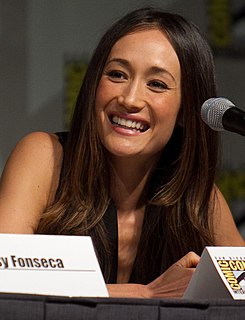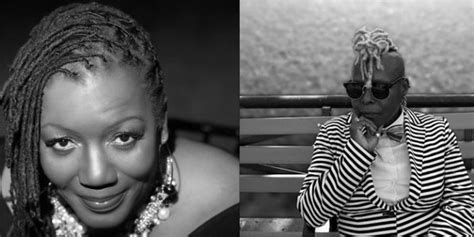A Quote by Barack Obama
All of these different strands in me - the black, the white, the African - all of that has contributed directly to my success because when I meet people, I see a piece of myself in them. And maybe they see a piece of themselves in me.
Related Quotes
If you are doing a piece about somebody, even if you admire them tremendously and express that in the piece, express that admiration, if they're not used to being written about, if they're civilians, [...] they're not used to seeing themselves through other people's eyes. So you will always see them from a slightly different angle than they see themselves, and they feel a little betrayed by that.
I didn't see myself any different from my white counterparts in school. I just didn't! I thought I could do what they did. And what I didn't do well, I thought people were going to give me the opportunity to do well, because maybe they saw my talent, so they would give me a chance. I had no idea that they would see me completely different.
What frustrates me is to see African-Americans behave as though what European-Americans say is worthwhile. It simply isn't. It's just some silly people who can make laws and have the power to enforce them. I'm often amazed at the conversations black people have about themselves. They ought to be having these conversations about white people. It's white people who are flawed and at fault.
Even people who say that black people are minorities, there are a billion black people in the world. A billion white people. What part of that is a minority? If you separate yourself, then maybe. But I see black people as one man. When I see people beaten on the streets of America, that hurts me. I feel that.
I try to write each piece in the language of the piece, so that I'm not using the same language from piece to piece. I may be using ten or twenty languages. That multiplicity of language and the use of words is African in tradition. And black writers have definitely taken that up and taken it in. It's like speaking in tongues. It may sound like gibberish to somebody, but you know it's a tongue of some kind. Black people have this. We have the ability as a race to speak in tongues, to dream in tongues, to love in tongues.
When I looked at 'Dear White People,' you have four African-American students who are all very different and who are trying to figure out who they are. They're dealing with identity issues and crises. That is exciting to me, to see African-American young people on a page, on a screen, who are so diverse and whose stories are all so different.
I turned my head to the sky, to the sun, to the stars, and put a little piece of my love in every star, in the moon, in the sun, and they loved me back. And I became one with the moon and the sun and the stars, and my love kept growing and growing. And I put a little piece of my love in every human, and I became one with the whole of humanity. Wherever I go, whomever I meet, I see myself in their eyes, because I am a part of everything, because I love.
I'm an African woman, I suppose these thoughts torture me more than they do black American people, because it's like watching my own children trapped in a car that's sinking to the bottom of a lake and being impotent to save them'the black Americans have their own holocaust going on. You see the black man erasing black children from the landscape, you see black women desperately trying to get the black man's attention by wearing blonde hair and fake blue eyes, 500 years after he sold her and their children across the ocean.
I see racism as institutional: the rules are different for me because I'm black. It's not necessarily someone's specific attitude against me; it's just the fact that I, as a black man, have a much harder time making an art-house movie and getting it released than a white person does about their very white point of view. That's racism.
But most of us who aren't models aren't models, right? And so, you just have to get used to that and sort of read right past it. So. On the sex symbol piece, I don't get that piece. On the personality piece, that people are excited to meet a leader from Mozilla - maybe there's more about meeting me personally than I give credit for, but I find that people are excited about what Mozilla is, more than 'Oh my god, there's Mitchell, look, her hair,' whatever.


































